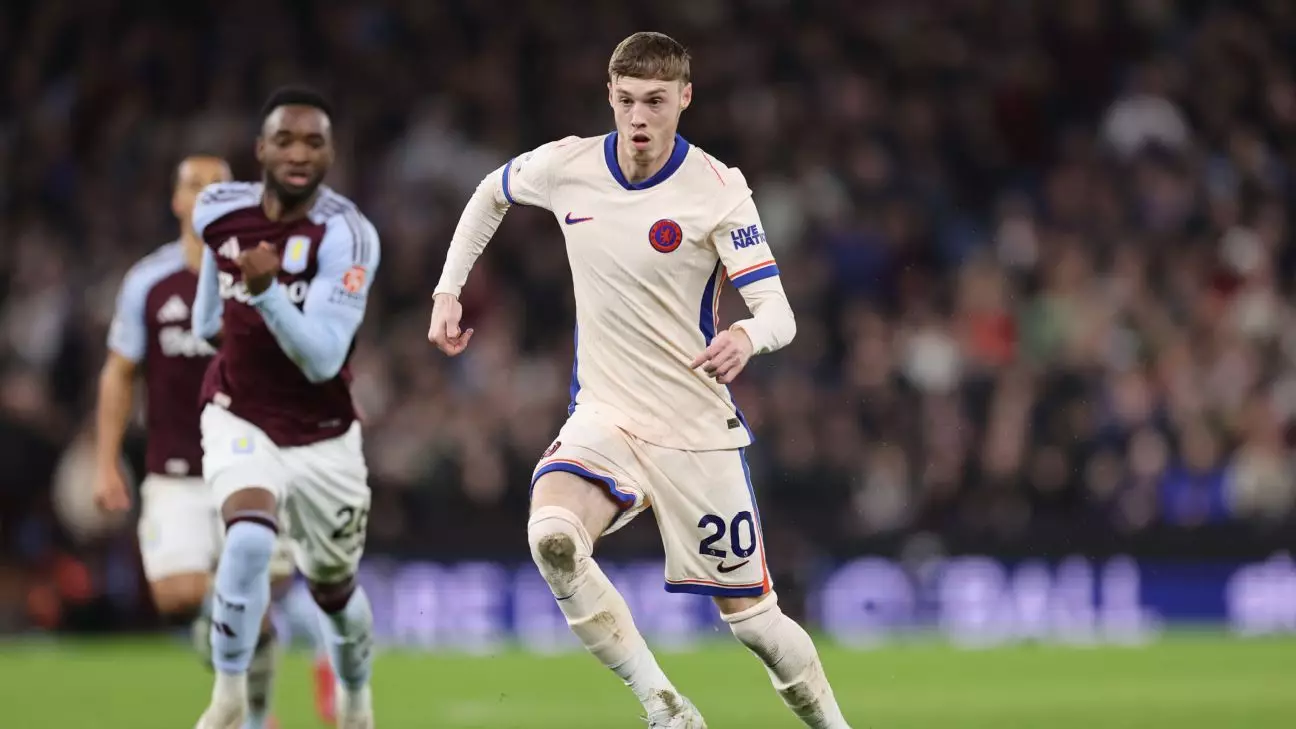Chelsea Football Club, once a dominant force in English football, is currently struggling to find its footing in the Premier League. After suffering a disappointing 2-1 defeat to Aston Villa, the team has slipped to seventh place and is facing mounting criticism. At the heart of these discussions is young midfielder Cole Palmer, whose form has recently declined. Manager Enzo Maresca has acknowledged the team’s over-reliance on Palmer while attempting to defend the player’s attitude during a tough period. This article explores the implications of Palmer’s recent performances, team dynamics, and the broader challenges Chelsea faces in their quest for stability.
Cole Palmer was initially heralded as a breakout star for Chelsea, racking up impressive numbers with 14 goals and six assists in just 26 league games. However, the weight of expectation has proven to be a double-edged sword. Now, after six games without a goal dating back to mid-January, Palmer is being scrutinized for missed opportunities that could have altered the course of critical matches against top opponents. Maresca’s concern about the team’s over-dependence on Palmer highlights a persistent issue: when a single player is relied upon too heavily, it creates an imbalance that can lead to systemic failure.
Maresca’s insistence that they need to focus on collective efforts rather than individual brilliance signals a pivotal moment for the club. The pressure to perform can stifle creativity and lead to frustration, as seen with Palmer’s body language during recent matches. Instead of rallying behind their young star, the team seems to be caught in a feedback loop of frustration and missed chances. The challenge lies in redistributing responsibility among players to alleviate the pressure on Palmer and enhance overall team performance.
Palmer’s visible frustration on the pitch following missed opportunities against Aston Villa and Manchester City has not gone unnoticed. Critics have pointed towards his body language, suggesting it indicates deeper issues with his mindset. However, Maresca disputes this interpretation, stressing that Palmer’s frustrations are likely symptomatic of the broader team struggles rather than personal discontent. The manager’s perspective sheds light on the importance of fostering a supportive environment, where players can thrive without the fear of adding to the collective burden of failure.
Moreover, blaming an individual’s attitude during challenging times might reflect broader systemic issues in team spirit and morale. If teammates are not demonstrating their own frustrations, it raises questions about the overall commitment toward shared objectives. The emphasis should be on collective resilience and support, rather than isolating Palmer as the focal point of dissatisfaction.
For Palmer to regain his form and confidence, a holistic approach is essential—not only focusing on individual performance metrics but also considering mental well-being and team chemistry. Maresca’s approach of encouraging Palmer to continue working hard reflects a sound understanding of player development, but it also highlights the need to create an environment conducive to success. Acknowledging the pressures athletes face is critical; they need affirmation from their surroundings, both in terms of skill and mentality.
The challenge for Chelsea is to recalibrate their approach, fostering an environment where each player can contribute to overall success. This means cultivating a culture of accountability, wherein each player feels a shared responsibility to perform well—not just for themselves but for their teammates as well. The collective morale needs to be lifted if the club aspires to challenge the top teams in the league again.
Chelsea’s current struggles reflect deeper issues beyond one player’s performance. The team must collectively address its reliance on a handful of individuals while empowering every member to step up. As for Cole Palmer, focus should shift from personal scrutiny to collective support—an understanding that every member’s success is intertwined. Only then can Chelsea hope to reignite its former glory and become a force to be reckoned with in the Premier League. This journey requires patience, unity, and a shared commitment to transcend the challenges that lie ahead.

